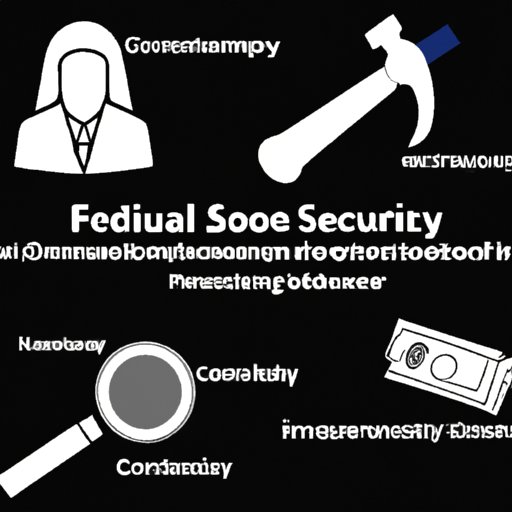Introduction
A forensic science degree provides individuals with the opportunity to pursue careers in a wide range of fields. From crime scene investigation to laboratory analysis, there are numerous job opportunities available to those who have obtained a degree in forensic science. This article will explore what a degree in forensic science can lead to, examining the educational requirements, career paths, and salary & job outlook for degree holders.

Career Paths for Forensic Science Degree Holders
A degree in forensic science can open up a variety of job opportunities. Forensic scientists typically work in law enforcement, crime laboratories, medical examiner’s offices, or private consulting firms. They may be tasked with analyzing evidence from criminal cases, such as biological samples, firearms, or fingerprints. Other responsibilities may include writing reports, testifying in court, or providing expert witness testimony.
In addition to traditional forensic science positions, there are several other fields that degree holders may pursue. Crime scene investigators analyze crime scenes for evidence and collect items for further laboratory analysis. Forensic psychologists use psychological principles to evaluate criminal suspects and provide expert testimony in court. Forensic accountants investigate financial fraud and money laundering, while forensic engineers analyze accidents and failures of products or structures.
Educational Requirements for a Forensic Science Degree
The educational requirements for a forensic science degree vary depending on the type of position sought. Generally, most positions require at least a bachelor’s degree in a relevant field, such as biology, chemistry, or criminal justice. Some positions may require a master’s degree, while others may not require any formal education beyond a high school diploma. It is important to research the specific requirements for the position being sought in order to ensure that the necessary qualifications are met.
In addition to academic requirements, many employers may also require professional certifications. The American Board of Criminalistics (ABC) offers certifications in areas such as forensic DNA analysis, drug analysis, and firearms identification. The International Association for Identification (IAI) offers a Certified Latent Print Examiner certification. Obtaining these certifications can help demonstrate an individual’s expertise in their chosen field and may improve job prospects.

Salary and Job Outlook for Forensic Science Degree Holders
The salary and job outlook for individuals with a forensic science degree vary depending on the type of position sought. According to the Bureau of Labor Statistics (BLS), the median annual wage for forensic science technicians was $59,150 in 2019. However, salaries can vary based on experience, education level, and geographic location. Additionally, job demand for forensic science technicians is expected to grow 14% from 2018 to 2028, which is faster than the average growth rate for all occupations.
For those looking to enter the field of forensic psychology, the BLS states that the median annual wage was $87,450 in 2019, with job demand expected to grow 11% from 2018 to 2028. The median annual wage for forensic accountants is slightly lower, at $71,550 in 2019, but job demand is expected to grow much faster, at 22% from 2018 to 2028.
Conclusion
A degree in forensic science can open up a variety of career paths, from crime scene investigation to laboratory analysis. Depending on the type of position sought, educational requirements can range from a high school diploma to a master’s degree. Additionally, professional certifications may be required for certain positions. Finally, salary and job outlook vary depending on the type of position sought, but overall, job demand for forensic science degree holders is expected to grow significantly over the next decade.
In conclusion, a degree in forensic science offers a wide range of opportunities for individuals interested in pursuing a career in this field. With the right educational background and professional certifications, individuals can find fulfilling jobs with competitive salaries in the growing field of forensic science.
(Note: Is this article not meeting your expectations? Do you have knowledge or insights to share? Unlock new opportunities and expand your reach by joining our authors team. Click Registration to join us and share your expertise with our readers.)
